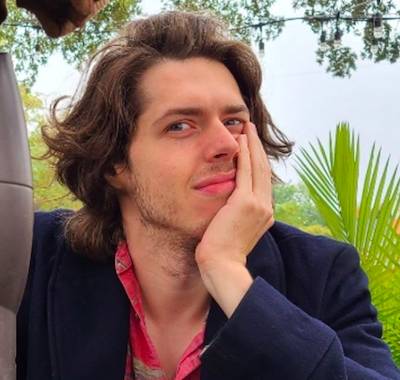“Talk To Me” Directors Danny & Michael Philippou on Crafting the Year’s Most Unsettling Horror Film
Danny and Michael Philippou do not pull their punches in their chilling feature film directorial debut Talk to Me. Having honed their craft over years making short films, the twins crafted a horror movie that screams with confidence and passion, where not a single scare seems to miss the mark. There’s a reason the powerhouse mini-major studio A24, behind some of the best horror films of the last decade, got behind these two.
Talk to Me is led by a young woman Mia (Sophie Wilde), grieving over the death of her mother, who is part of a group of friends who figure out how to commune with the dead. The recipe to conjure spirits is surprisingly straightforward—shake an embalmed hand, welcome a spirit inside, and experience the other side. What if once a spirit is conjured, it doesn’t leave? As Mia grieves the mysterious loss of her mother, she finds out the hard way what happens when you make contact with the spirit world.
Talk to Me is a delightfully sinister and visceral experience, arguably the year’s most unsettling, unstinting horror film. Danny and Michael Philippou talked to The Credits about crafting their unholy vision, a sensual feast of horrors that the late, great William Friedkin would have admired.
Often in film, it’s what you don’t show that’s scarier, but here, what you do show is scarier. Was that an intention?
Danny: For the most part, we knew we wanted to build up to those scenes of horror and not shy away from it while we’re doing it. And so, it’s not all the way through the film that we’re showing this really extreme imagery. But once things happened, we didn’t want to bat an eye.
Michael: Show the consequences of the actions that these kids are making.
Danny: On top of that, there was a sequence we shot that was initially two and a half minutes; we had to cut it down to 15 seconds because it was too much. That trip to hell never would’ve gotten past the sensors.
Michael: Even when we were watching it, we were like, ‘This looks like a different movie.’ We suddenly ventured into some interesting, very violent territory.
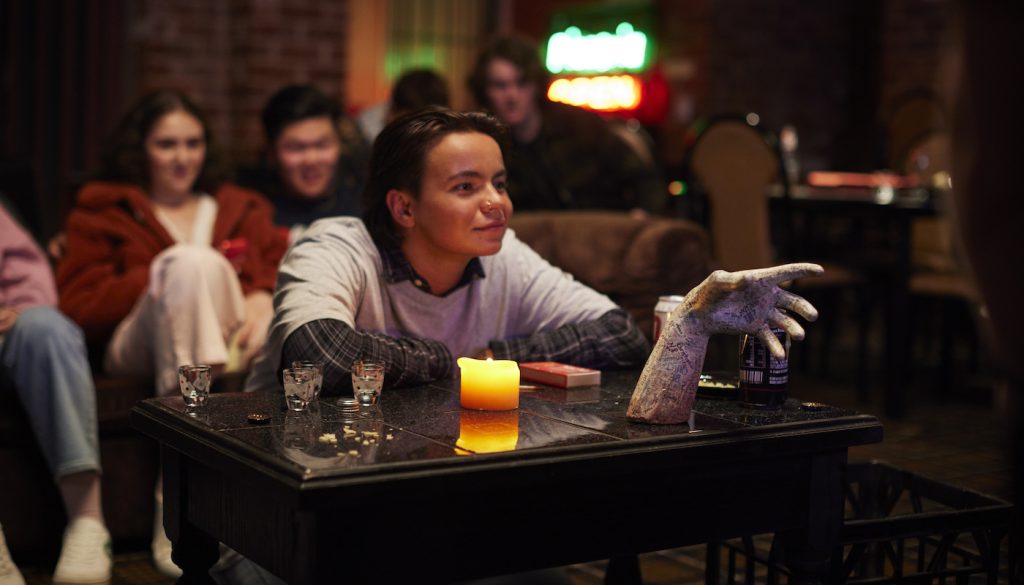
Even with all the intensity, there are horrors that are subtle, as well. For example, the sound design and the score work in a way that’s almost as ruthless as the visuals. How did you accomplish that?
Danny: Michael was so OCD with sound and music. He did a temp score for the entire movie. He was in every sound session giving brutal notes. It was like, “Oh, my God. Let the person work, Michael.”
Michael: When we’re mixing manually, when they bring things down, certain tracks, I can hear it. I’m like, ‘Can we not do it manually? Because I can hear that drop too quickly.’ So, I’m really annoying, I guess, but I have a certain vision in my head, especially with merging the sound and music. I wanted them both to be equal and not have music buried under sound or sound buried under music. We’re having them both work in sync with each other, which wasn’t easy to do.
Danny: The biggest shout-out to our sound designer, Emma Bortingnon. Every time that we’d give Emma a whole bunch of notes, she’d go away, do a pass and then bring it back. And it’d be like, “Whoa, listen to this.”
Michael: And a shoutout to our composer, Cornel [Wilczek]. We actually had to redo the music for a few different reasons, and Cornel came in last second and saved us. Man, I would send so many notes, and he’d get them all. It was amazing work.
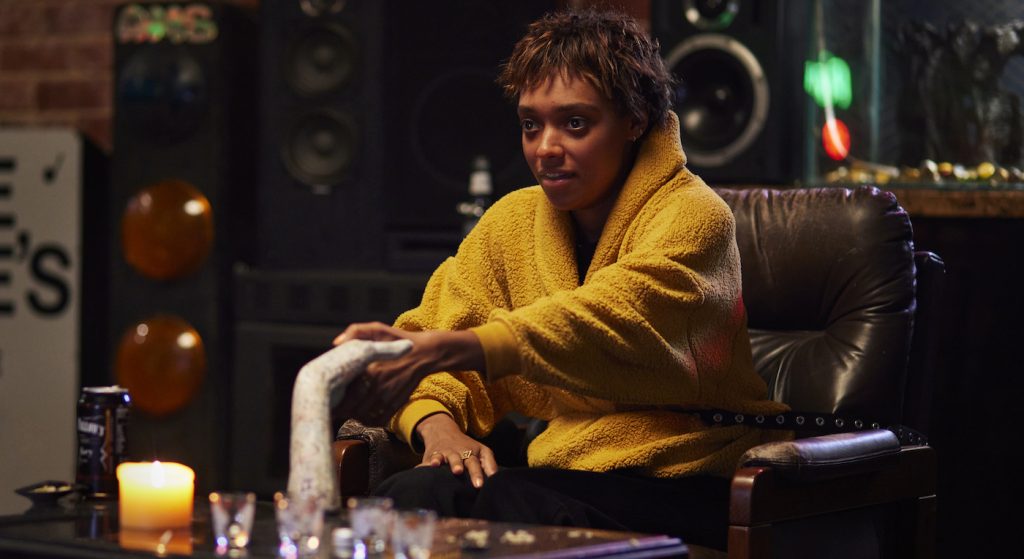
What originally happened with the score?
Michael: The music didn’t work the first time around, so we were able to really focus on the sound design and really nail out the sound of the possessions and atmosphere. And then, the second mix was implementing the music cohesively. So, it was a blessing in disguise, but I can’t wait for the next movie to start music earlier in pre-production.
This movie doesn’t hit you over the head with rules, but did you both have rules for yourselves?
Danny: We had the thickest mythology that breaks down every single rule. All the backstories of the spirits the kids connected to and why those kids are connecting to them. We broke that all down, but we wanted the kids to be in over their heads. We didn’t want there to be some expert that can explain things and didn’t want there to be an easy out.
Any rules for yourselves for how you went about filming?
Michael: We wanted it all to be grounded in Mia’s point of view, so you never see a spirit outside of what Mia sees.
Danny: Another subtle, small thing that we did is remove every single lens flare from the film except for in the dream sequence that Mia has. That’s the only lens flare that we have in the film to help differentiate one world from the other. Just subtle things like that.
Michael: Camera movements. The way things look in the possessions is different from how it looks standard. Finding that visual language was invaluable. And then also, through sound, you can communicate so much. You don’t need to do it visually. Different ways of saying things without saying them.
Danny: And then, there’s subtle sound design and music things that we had tied to each demon as well. Once this certain demon is connecting with Mia, there’s a certain sound that underlays that.
Michael: And even how they died, that’s incorporated all into the soundscape as well. Man, it was such an amazing experience, and we learned so much. Because usually, just trying to do it ourselves is one thing, but then, doing it with professionals and having those conversations, your mind blows over with all these ideas.
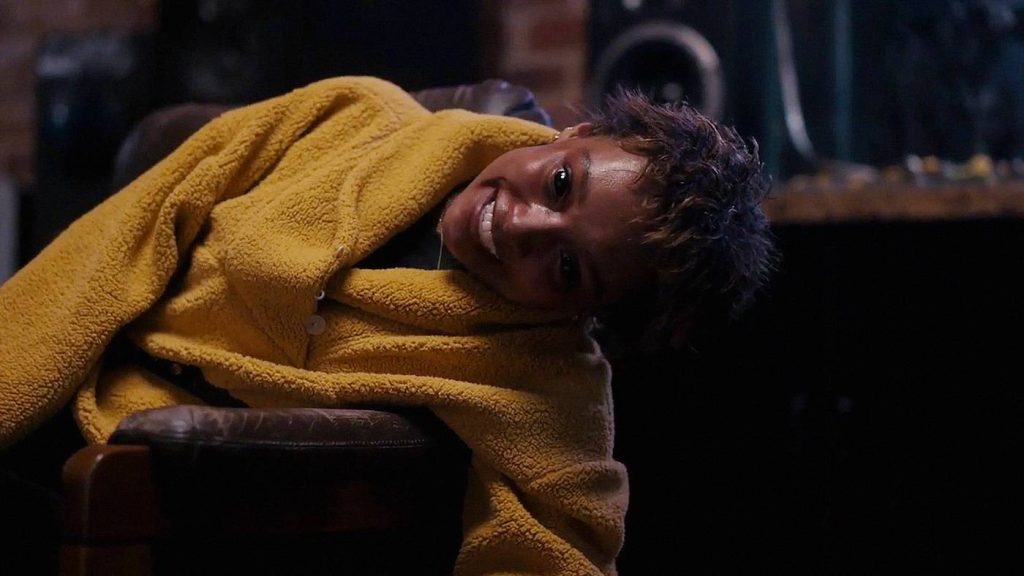
Did you both talk through how Talk to Me would be interpreted and what message people would take away from it?
Danny: I like leaving that stuff up to interpretation. I know what it means to me and what we’re saying, but I like hearing everyone’s take on it. So, I don’t want to explain too much, but I think you can interpret it anywhere that you want.
Michael: It was like witnessing a tragedy leading up to a car crash.
Danny: And I was a bit in a dark head space when I was writing some of this stuff, and that’s just expressing it and putting it on the page. And some of that sadness is in there.
Michael: You’re a sad man. Get this guy a therapist.
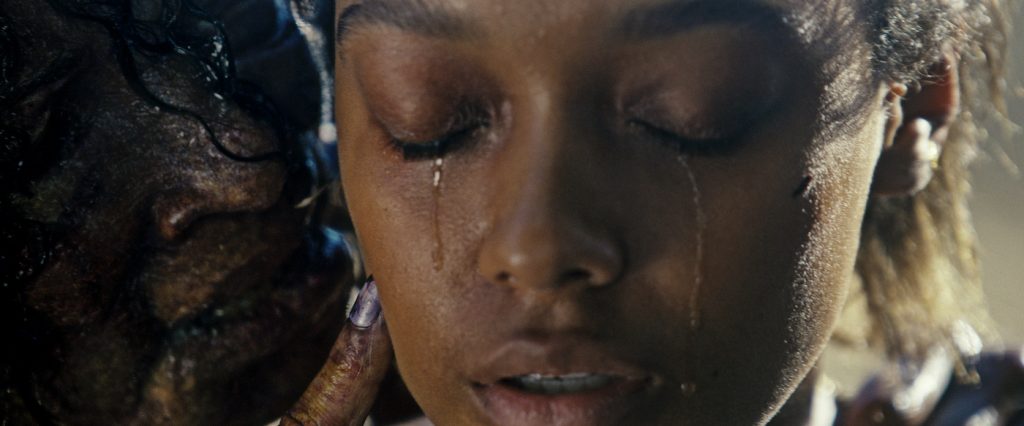
[Laughs] Well, the passion shows in the movie. Did you both have conversations about loss and how to express it best creatively?
Danny: We lost our grandfather, who helped raise us. Our parents weren’t home that much. And he passed away when we were thirteen, in our house on Christmas day. It’s pretty insane. It was a hole ripped out of your life a little bit, and you’re looking for something, anything to fill it with.
Michael: So much of the film is about connection. Mia is having every ounce of intimacy stripped away from her throughout the film. Some people say that she’s an unlikable character, but I really empathize with Mia.
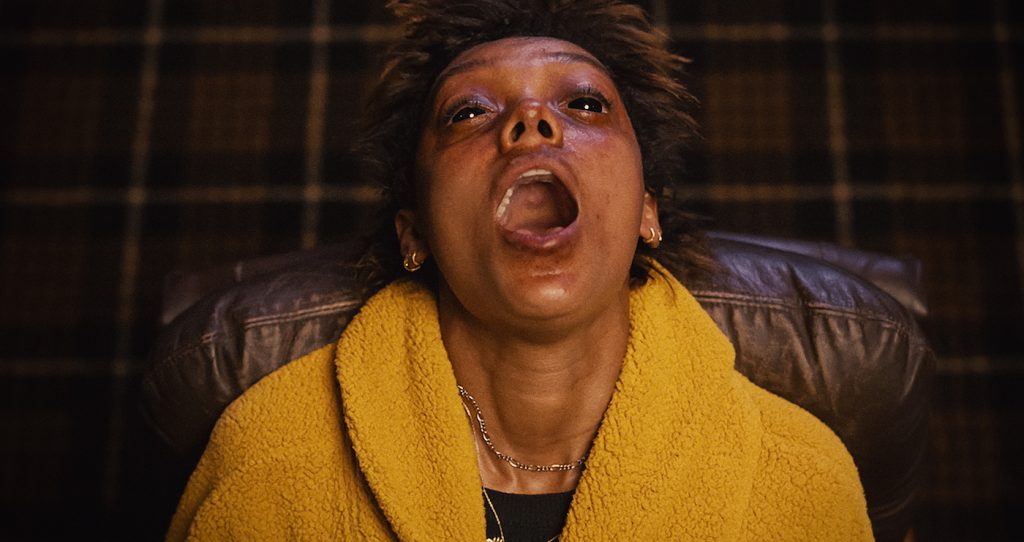
She has PTSD, and sometimes, you make unreasonable choices when you’re experiencing it.
Michael: Especially without the right guidance as well. You can get into the wrong crowds when you’re trying to fill a certain hole. You can get led down a different path.
Talk to Me is in theaters now.
For more films from A24, check out these stories:
“Priscilla” Trailer Finds Priscilla Presley Taking Center Stage in Sofia Coppola’s Biopic
“You Hurt My Feelings” Cinematographer Jeffrey Waldron on Re-Teaming With Nicole Holofcener
Michelle Yeoh Makes History & “Everything Everywhere All At Once” Wins Big
Featured image: (L-R) Sophie Wilde Credit: Courtesy of A24


